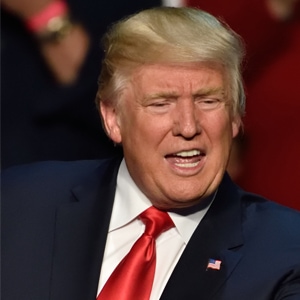Various plans to revamp the US tax regime offer a range of potential benefits—and problems—to both US and non-US companies and could spark a global trade war if other countries respond with tit-for-tat measures.

People, businesses and governments around the world are looking anxiously toward Washington these days, trying to read the mind of the new president, Donald Trump, and the soul of the new Congress for changes that might affect them. Trump and the Republican majority on Capitol Hill may deliver less revolution, or counterrevolution, than they promise on various issues of concern to US residents, but one change afoot will have momentous resonance outside the US too: reform of the ungainly US corporate tax system.
Like America’s patchwork health insurance system when Barack Obama took office eight years ago, corporate taxation is a festering public sore whose time has come for systemic treatment. The White House and Congress both see tax reform as a priority, and even some Democrats concur that the status quo is rotten. “There will be something by the end of the year or very early next year that they will at least call tax reform,” says Rohit Kumar, a former domestic-policy director for top Senate Republican Mitch McConnell and now a co-leader of PwC’s tax policy group in Washington.
The content of any tax overhaul will depend on the intricacies of US politics as various business lobbies battle for favored provisions; the Senate leadership remains noncommittal on big ideas stemming from the House of Representatives; and President Trump sends out mixed signals. But tax reforms could prove a game-changer for managers and investors across the globe.
A pseudo-tariff in the form of a Border Adjustment Tax, as proposed by the Republican Party, could heavily disrupt international trade flows. Corporate tax havens like Ireland or Bermuda could become much less attractive as a magnet for “inversions.” And that is before a battery of Congressional committees gets into the fine print.
Reform could yield some positive consequences as well, not least bringing America’s corporate tax regime more in line with developed-world norms. The current system boasts an extremely high nominal corporate tax rate—up to 35%, plus an average 4%–5% tacked on by the states—but with so many loopholes, many large companies with clever lawyers pay a bare fraction of that.
Uniquely, the US tries to tax the worldwide income of corporations domiciled on its shores. The result is an increasingly grotesque ballet of American multinationals “stranding” trillions of dollars in profit abroad and “inverting” corporate structures to move their titular headquarters to lower-tax jurisdictions. Ireland, for instance, collects a mere 12.5% in corporate tax.
TAX MOVES OUTSIDE THE US
The working corporate tax “Blueprint” championed by House Speaker Paul Ryan proposes to slash the nominal US corporate tax rate to 20%, which when state levies are added, would align it with the developed-world average in the mid-20s. It moves to a “territorial” system that abandons the quest to capture worldwide income. And it axes interest deductions that arguably encourage excessive leverage, while granting an immediate write-off for capital investment instead of current drawn-out depreciation schedules.
Europe is also on the move, sort-of, with respect to corporate taxes. Last September, the European Commission began considering a proposal to harmonize tax bases—that is, the framework for counting income and deductions—although not rates across its 28 member states. Brussels tried to start a similar initiative in 2011, but was stymied by opposition from soon-to-be ex-EU member, the UK.

The EU took more direct aim at its internal anomalies last year in ruling that tech giant Apple had underpaid taxes by €13 billion ($13.8 billion) over an 11-year period, thanks to routing EU business through Ireland. The company and the Irish government are
both hotly contesting the judgment. British Prime Minister Theresa May meanwhile committed her country to having the lowest corporate tax levy among the world’s top-20 economies once Brexit is completed. May made this pledge in a speech to business leaders last November.
But the new political leadership in Washington promises by far the most significant changes to corporate tax in the short term. Ryan’s basic premise of lower, but less loophole-ridden, corporate taxes gains widespread support, at least until it starts mashing through the legislative meat grinder attended by hordes of K Street (reference to a street in Washington, DC, which is a center for think tanks) lobbyists. “Everybody agrees that what we’ve got is a nonsensical way to run a tax system,” says Edward Kleinbard, a former chief of staff for Congress’s Joint Committee on Taxation who now teaches at the University of Southern California’s law school. “The difficulty is that everything about tax reform is details. There is no point where you can say never mind the details.”
IT’S ABOUT THE DESTINATION
Ryan also throws a forbidding joker into the deck with an element called the “destination-based cash flow tax” (DBCFT). An apparent, extreme tilting of the economic scales to exempt export income and deny deductions for imports, this proposed levy would be “the most significant change to the code since it was introduced in 1913,” says Kumar of PwC. The DBCFT (commit that acronym to memory) is igniting a battle royal within the US business community and threatens to roil global trade even without any new tariffs from Trump. The president himself seems lukewarm to it. “Anytime I hear border adjustment … usually it means we’re going to get adjusted into a bad deal,” Trump told the Wall Street Journal in January.
Yet without the destination-based tax, Ryan’s rate cuts would cost the Treasury at least $1 trillion over 10 years, a budgetary hole Congressional Republicans are reluctant to open, especially with significant personal income tax cuts also on the table. So the DBCFT may well go through, albeit with a long phase-in period.
The most glaring symptom of the current US corporate tax system’s dysfunction is the mountain of stranded profits American multinationals have earned and parked abroad in liquid form, waiting for a “holiday” when they can repatriate cash at a much-reduced rate. When the last such window opened under George W. Bush in 2004, companies brought home some $360 billion and paid 5.25% federal tax on most of it. Rampaging globalization has multiplied the sums involved since then; Congressional research estimates the current stranded-profit hoard stands at $2.6 trillion.
Dozens of US-born companies have addressed the issue with so-called inversions, purchasing a smaller target registered in a tax haven, then transferring their headquarters there on paper. Industrial equipment maker Johnson Controls, for instance, “moved” last year from Milwaukee, Wisconsin to Cork, Ireland, estimating future tax savings of $1 billion. US politicians have inveighed against this practice to little avail.
Yet the new foreign-profits holiday that candidate Trump promised may be the least consequential of corporate tax moves in the pipeline. The impressive sums involved are highly concentrated among a relative handful of corporate giants. Goldman Sachs research last year named Microsoft, GE, Apple and Pfizer as the potentially biggest winners from a tax holiday. “A few companies get maybe 50% of the value from a foreign-earnings holiday, so its wider impact is limited,” says Jeremy Lawson, chief economist for Edinburgh-based asset manager Standard Life Investments.
Most of the companies with substantial earnings trapped overseas are already cash-rich. They are more likely to recycle the repatriated funds to shareholders as buybacks or dividends, rather than spearheading the US investment renaissance that Trump has envisioned. A follow-up study of the 2004 Bush corporate tax holiday by the National Bureau of Economic Research found that up to 92 cents of every recaptured dollar went into shareholders’ pockets. The cost to non-US economies would also be minimal, as the
$2.6 trillion in stranded US company profits is mostly invested in low-risk financial instruments—only residing offshore on paper, experts say.
KEEPING PACE
The House Blueprint for permanent corporate tax changes, by contrast, is substantive to say the least. It hinges on two big ideas. The first and least contentious is having the US join the rest of the world in taxing only those corporate profits earned on its own soil. That would end the untenable quest to skim Apple’s or GE’s worldwide earnings, which in turn would eliminate the incentive for inversions. Multinationals, particularly tech giants who sell intangible software or services, would still have a reason to book sales in places like Ireland. But the Irish exception may be unable to survive the assault of its EU partners. “Ireland would be the big loser from both European harmonization and the proposed US tax changes,” says Mark Hallerberg, a professor of public management and political economy at the Hertie School of Governance in Berlin.

Ryan & Co.’s second big idea is shrinking the corporate tax rate, but paring back deductions. The House Blueprint would eliminate deductions for interest expenses, which are unlimited under current law, offsetting that with an immediate write-off for capital
spending. (Interestingly, land purchases are excluded from the deductible category, which is likely to sit poorly with president Trump’s realestate colleagues.)
Axing the interest deduction could mean a higher tax bill for some businesses that fueled growth with debt, even at the lower headline rate, Kleinbard reckons. “This move is going to raise the effective rate on a lot of leveraged companies,” he says. But most economists, and politicians, seem to agree that is a price worth paying to encourage investment directly rather than corporate debt, which has nearly doubled since 2006 to $5.8 trillion for US companies, according to Federal Reserve figures. “You could see bipartisan agreement on a lower corporate rate with fewer deductions,” says Chuck Marr, a former Democratic Capitol Hill staffer who is now tax policy director at the left-leaning Center on Budget and Policy Priorities.
The real problem with the Ryan reforms is they would bring in a lot less revenue than even the current leaky system—no one is even sure how much less. “You would have to make pretty heroic assumptions about growth and collections for a cut to 20% to be revenue-neutral,” says Lawson of Standard Life.
Britain has offset corporate tax cuts with hikes in value-added tax, which rose from 17.5% to 20% in 2011. But VAT is anathema to many US lawmakers as a hallmark of hated European socialism, so House Republicans designed the DBCFT instead. Essentially, this innovation would tax importers on the full value of the imported goods they sell, while waiving all tax on profits from exports.
If Walmart sells a Bangladeshi-made blouse for $10, that’s $2 of tax liability ($10 x 20%), even though the profit may be $1. If Boeing sells a US-built 737 to Bangladesh Airways for $80 million, there is no tax charge even though Boeing might earn $10 million—plus Boeing can deduct all the costs of building the plane against taxes elsewhere. Since the US imports more than it exports, the DBCFT should be a moneymaker for Washington.
Opinion on the destination-based tax is predictably divided. “I know some people who think it’s genius and some people who think it’s lunacy, rolling the dice with the world’s biggest economy,” says PwC’s Kumar. Supporters of the destination-based tax contend that it pays for the broader corporate tax cuts and tilts the scales of global commerce back toward America in one brilliant swoop. “One of the purposes would be to create a new incentive for businesses around the world to locate in the US,” Kumar adds.
A TRADE WAR?
Opponents argue that the DBCFT would soak consumers and likely provoke a debilitating trade war with economic partners. The National Retail Federation estimated in early February that the levy would cost an average US family $1,700 a year, or 27% of disposable income, as prices jumped for imports from shoes to gasoline.

Advocates respond that an increase in the dollar’s value would wipe out those losses, and that trading partners would effectively subsidize their own exports through VAT rebates. Those premises look shaky to many observers, particularly beyond US borders. While VAT export rebates are—on the surface at least—similar to a border adjustment, their scope is much more limited, Hallerberg of the Hertie School of Governance in Berlin argues. The VAT rebate simply keeps the same sale from being taxed twice in different countries, and it does not throw in all the exporting company’s expenses as Ryan’s DBCFT does.
The idea that the dollar would organically appreciate by 20% to offset the new tax’s cost to importers is also highly contentious, taking the inexact science of economics into a vast unknown realm. “Foreign exchange prices are determined by a multitude of trade and capital transactions,” US-based currency broker Bannockburn Global Forex writes in a recent research note. “The fastest and largest moving part of this balance is capital flows, not trade flows.”
Analysts agree that a DBFCT would tend to push the dollar up over time, but exporters to the US would also be forced to absorb part of the cost. “Some of the impact will be felt in foreign companies’ profits,” they conclude. Even those effects could be dwarfed by financial disruption. Non-US companies and governments owed an impressive $9 trillion in dollar-denominated debt as of 2014, according to the Bank for International Settlements, while US investors hold trillions more in foreign securities—all of them subject to havoc for a perpetually rising greenback.
Europe and the rest of the world would be “really stupid to just sit around” while the US changed the global-trade ground rules so dramatically, says Hallerberg. But Washington does not seem to be in the mood to care. “For domestic political purposes, the argument that other countries might frown on some part of the tax is not a very strong one,” says PwC’s Kumar.
In friendlier times, the EU might lodge a complaint about the US policy with the World Trade Organization, and wait a few years for that agency’s gears of judgement to grind. A more effective move in the age of Trump and Brexit might be for the EU to counter with some border adjustment of its own, Hallerberg suggests. “Taxation is up to the individual member states. But if this is judged to be about tariffs, the European Commission could act fairly quickly,” he says.
America’s trading partners might not actually face this choice between escalation and capitulation. It looks mathematically possible to keep Ryan’s less

incendiary proposals and remain revenue neutral without the DBCFT, if the headline corporate tax rate shrank to the upper 20s, not all the way to 20%. But House Republicans have shelved this sort of halfway measure before. (Barack Obama supported a cut to 28%.) “The reaction to a bill that would still leave us above the developed-world average if you count state taxes is that it wasn’t worth the pain,” Kumar says. Financial managers around the world might alternately conclude that they are on the cusp of a golden age of competitive tax deductions, or a cataclysm where the US upends the rules of global trade at a stroke. “What I can say unequivocally is that there will be winners and losers—and a lot of them—on both sides,” says David Miller, a veteran tax attorney with Proskauer in New York. “If the Blueprint is enacted, there will be a period of disruption.”
Behind the Trump tweetstorm, Washington is lumbering toward significant change in at least this one area. But it is the quieter machinations in Congress that will likely be decisive.



